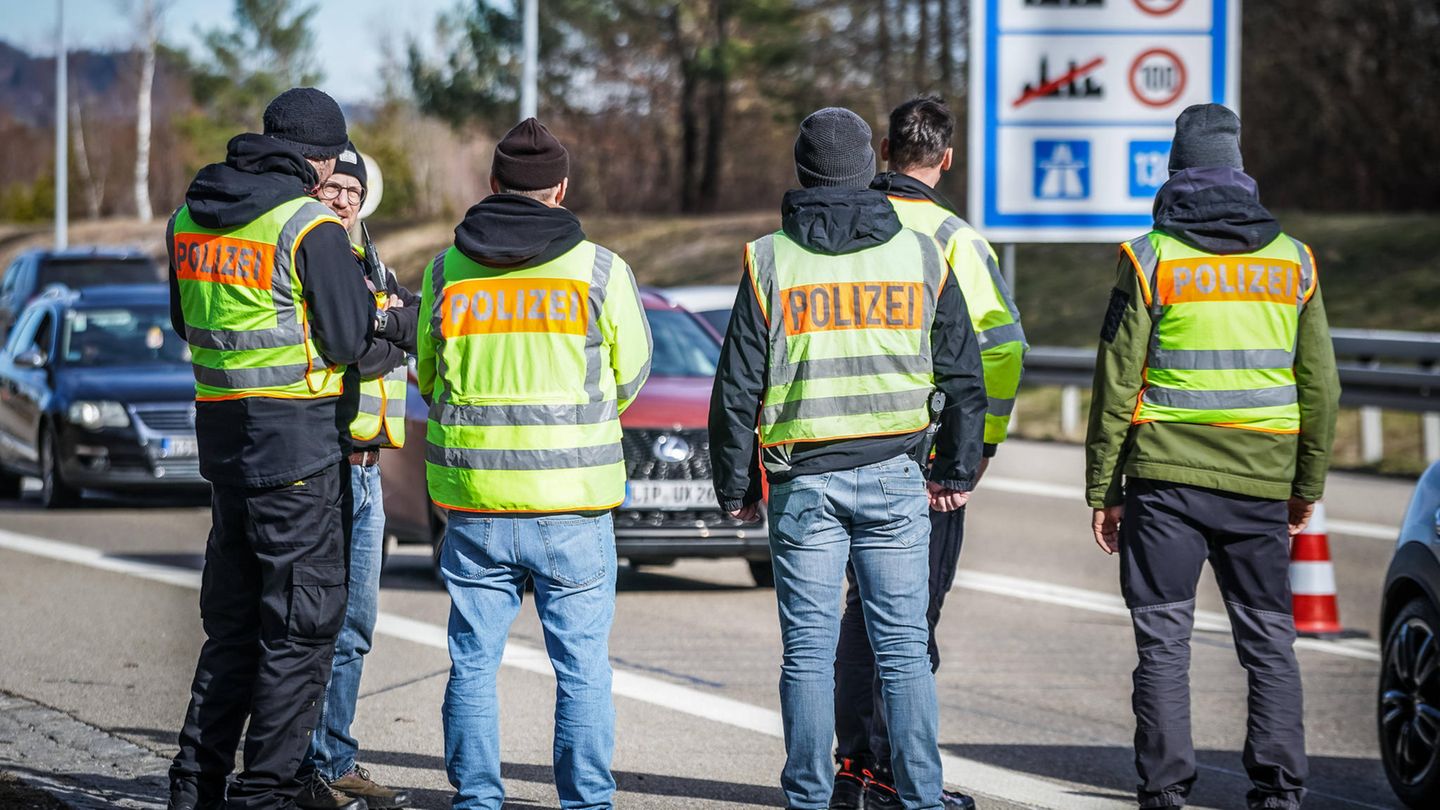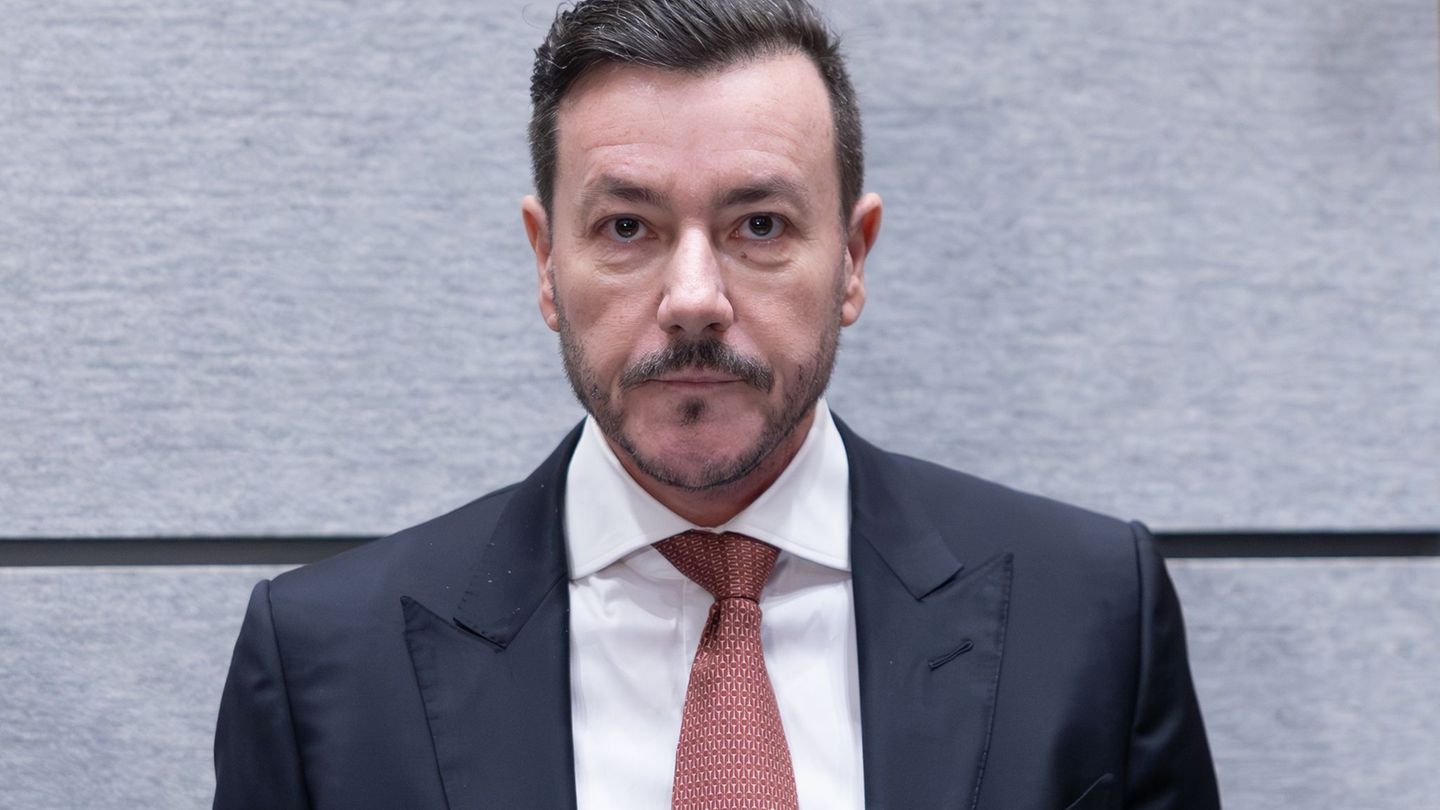The knife attack in Solingen is further fueling the asylum debate in Germany. The government wants to counteract this with a “security package”. But for many, this is not enough.
After the Islamist-motivated knife attack in Solingen that left three people dead and eight injured, local authorities have called on the federal government to carry out more deportations and are pushing for a “task force”. It is right to step up efforts to ensure that people without a right to remain return to their countries of origin, said managing director André Berghegger to the “Rheinische Post”. A “deportation task force” would therefore speed up the process and make it more efficient. Up to now, deportations have been a matter for the states, even if the states get support from the federal police to carry them out.
Berghegger also criticized the fact that the municipalities are not directly involved in the migration consultations. They should be at the table when decisions are made about migration and security. The talks between the government, the opposition and the states are scheduled for Tuesday. The municipalities had already insisted on participation at the migration summit last Tuesday.
Meanwhile, the police union (GdP) has spoken out in favor of turning away asylum seekers at the borders if this does not “cause any legal problems for the federal police officers afterwards.” The GdP chairman for the federal police, Andreas Roßkopf, also pointed out to the “Rheinische Post” that “the federal police are already working at their limits and further burdens would not be sustainable in the long term.”
Germany “overwhelmed” with asylum seekers
High-ranking politicians also believe that a limit on asylum applications is necessary. Shortly before the federal government is due to meet again with the Union on migration policy, both CSU leader Markus Söder and FDP leader Christian Lindner spoke out in favor of reducing the number of initial asylum applications to under 100,000. Söder said on Sunday evening on ARD that Germany was “overwhelmed by the consequences and integration.” The AfD parliamentary group, meanwhile, passed a position paper in which it named the fight against “illegal mass immigration” as the number one issue before the federal election.
On Sunday, Bavarian Prime Minister and CSU Chairman Söder demanded in the ARD program “Report from Berlin” with regard to the annual initial asylum applications in this country: “Overall, the number must be significantly reduced to well below 100,000 in the long term, because we are actually overwhelmed” – and this “not only with regard to daycare centers and schools and housing”.
Germany is “also partly culturally overwhelmed,” Söder added. “In many German cities, even the German residents no longer feel at home.”
Lindner: Rejection urgently needed
In the “Report from Berlin,” FDP leader Lindner said of the demands to reduce the number of initial asylum applications to under 100,000: “I can take that number on board.” In terms of migration policy, he is prepared “to do everything that is politically, legally and logistically possible.” There must be “some form of rejection.”
Lindner insisted that his party should have a say in the migration debate. When asked to what extent Scholz should use his authority to issue directives to enforce rejections at the border, he replied: “It will not work to work with ‘Basta’ arguments in coalition governments.”
With regard to the migration debate, the FDP leader accused the CDU of “trying to gain party political gain, of working tactically.” However, the CDU will not gain anything on the issue of immigration, said the Federal Finance Minister. “At most, it can strengthen the AfD and the Sahra Wagenknecht alliance.”
AfD makes migration policy an election issue
The AfD parliamentary group has identified migration policy as one of the most important issues before the federal election planned for September 2025. In its position paper adopted on Sunday, it calls, among other things, for “comprehensive border protection” – “if necessary also through the use of border fences” – as well as the consistent rejection and deportation of illegal immigrants. There should be no asylum procedures for people who enter from safe third countries or without identification documents, the paper states.
CDU leader Merz has made it a prerequisite for the meeting with the federal government on Tuesday that the coalition of SPD, Greens and FDP agree to his demands beforehand, particularly with regard to rejections. Chancellor Scholz replied that the rejections at the border demanded by Merz already exist.
However, Scholz was open to tightening the rules. According to the Federal Ministry of the Interior on Friday, more than 30,000 people have been turned away at the German borders since October 2023.
Source: Stern
I have been working in the news industry for over 6 years, first as a reporter and now as an editor. I have covered politics extensively, and my work has appeared in major newspapers and online news outlets around the world. In addition to my writing, I also contribute regularly to 24 Hours World.




